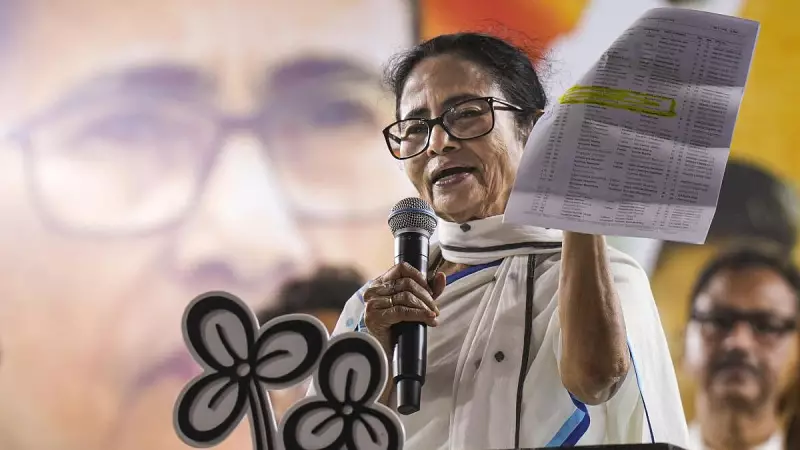
In a politically charged move that has captured national attention, West Bengal Chief Minister Mamata Banerjee personally received her population enumeration form on Tuesday, transforming a routine administrative exercise into a powerful symbolic gesture.
The Personal Touch in Political Confrontation
While the Chief Minister's office typically handles such procedural matters, Banerjee broke from convention by directly interacting with census officials at her Kalighat residence. This deliberate personal involvement comes amid her government's escalating opposition to the Centre's proposed Survey of India's (SIR) comprehensive household survey in the state.
Bengal's Stance Against Central Survey
The Trinamool Congress government has mounted significant resistance against the SIR initiative, viewing it as an unnecessary duplication of existing state-level data collection efforts. Banerjee's administration argues that West Bengal already maintains robust mechanisms for gathering demographic information and that the central survey represents redundant bureaucratic overreach.
"This is not just about data collection; it's about protecting federal principles," a state government official commented, reflecting the administration's position that the survey infringes upon state jurisdiction.
Symbolism in Census Participation
By personally participating in the census enumeration while simultaneously opposing the SIR survey, Banerjee has drawn a clear distinction between what her government considers legitimate data collection and what it perceives as central overreach. The visual of the Chief Minister engaging with census officials has been widely circulated, serving as both an endorsement of state-coordinated enumeration and a subtle protest against parallel central initiatives.
Political Implications and Federal Dynamics
The confrontation highlights the ongoing tensions in India's federal structure, particularly between opposition-ruled states and the central government. Banerjee's very public participation in the census process underscores her government's commitment to cooperative federalism while simultaneously asserting state autonomy in governance matters.
Political analysts suggest this carefully staged event serves multiple purposes: demonstrating the Chief Minister's accessibility to government machinery, reinforcing her administration's commitment to data-driven governance, and drawing clear battle lines in the ongoing state-centre power dynamics.
As the standoff continues, all eyes remain on how this symbolic gesture will translate into the broader political landscape, with potential implications for inter-governmental relations across India's federal system.






